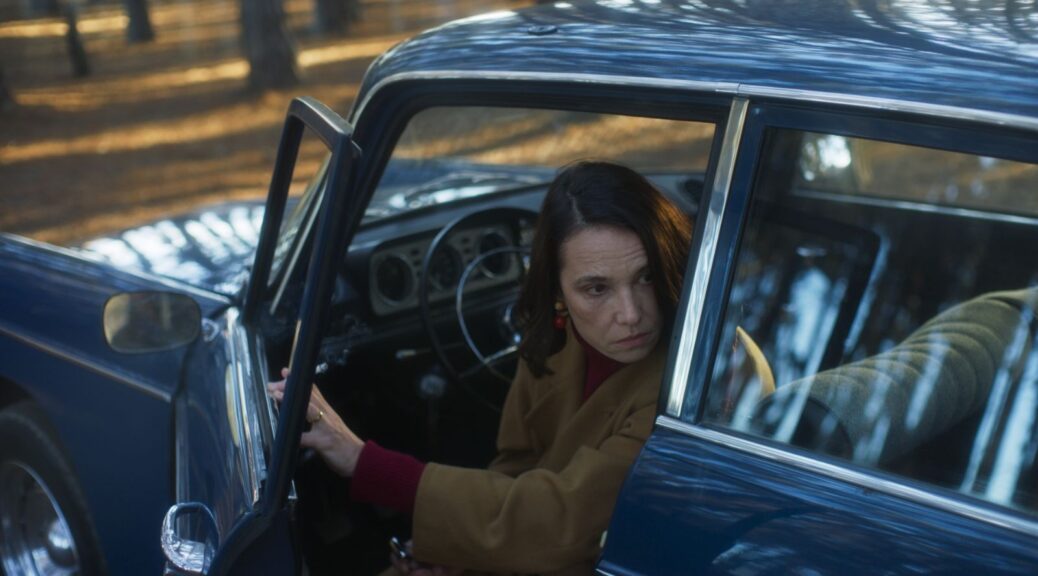Chile ’76
by George Wolf
Chile ’76 is a stellar feature debut for director and co-writer Manuela Martelli. It’s assembled with the measured pace of a storyteller committed to her vision and confident in her approach.
And, as a native of Santiago who was a teenager in the mid-seventies, Martelli is clearly passionate about this very tumultuous slice of her homeland’s history.
The film is set less than three years into the dictatorship of Pinochet, when a constant layer of fear hung heavy in the air. Carmen (Aline Küppenheim) is buying a can of paint for some home redecorating when she overhears a woman crying for help as local authorities take her away.
We don’t see the abduction, either, and Martelli’s focus on Carmen’s silent reaction is the first of many instances where the film gains heft from Martelli’s elegant restraint.
As the wife of a respected doctor (Alejandro Goic), Carmen enjoys a life of means and free time. She volunteers reading to the blind, and it is precisely Carmen’s standing, schedule and conscience that spur Father Sanchez (Hugo Medina) to entrust her with a sensitive task.
The twenty-something Elias (Nicolás Sepúlveda) was badly wounded by Pinochet’s forces, but escaped. Could Carmen nurse him back to health, in secret, at her family’s beach house?
Martelli builds a solid foundation to support this intimate political thriller, leaning on meaningful visuals and Küppenheim’s terrific performance to consistently elevate the stakes. While Carmen’s rich friends cling to familiar accusations of “lazy traitors” who only “want to get things for free,” Carmen’s life becomes a series of hushed meetings, secret passwords, and aroused suspicions.
It may only run 95 minutes, but Chile ’76 fills all of them with an impressive ability to change colors. Hints of a standard melodrama fall away to reveal tense political intrigue, becoming the centerpiece of a talented filmmaker’s somber salute to the spirt of revolution.

